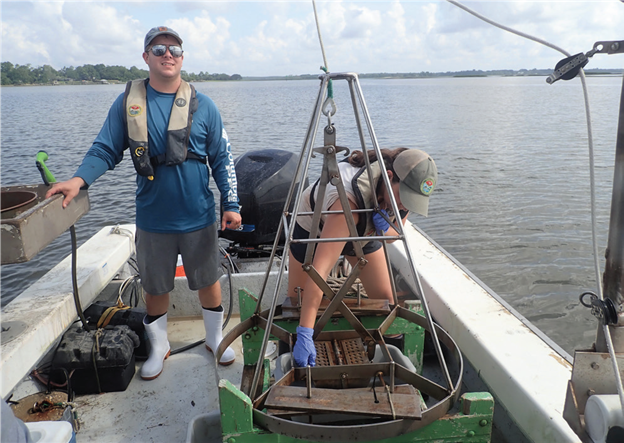
This fall, NCCOS toxicologists supported the annual South Carolina Estuarine and Coastal Assessment Program (SCECAP) survey of environmental quality by analyzing estuarine sediment samples for toxicity and chemical contaminants.
SCECAP is a multi-agency collaborative monitoring effort that collects multiple measures of water quality, sediment quality, and biological condition at a large number of sites throughout South Carolina’s coastal zone each year. The program integrates those measures into an overall assessment of estuarine and coastal habitat conditions over time to better understand the impact of changing land use.
Established in 1999, SCECAP is led by the South Carolina Department of Natural Resources and includes the South Carolina Department of Health and Environmental Control, NOAA’s National Centers for Coastal Ocean Science, the U.S. Environmental Protection Agency, and the U.S. Fish and Wildlife Service. To learn more about SCECAP and how NCCOS testing and analysis is used, see the most recent SCECAP report.
